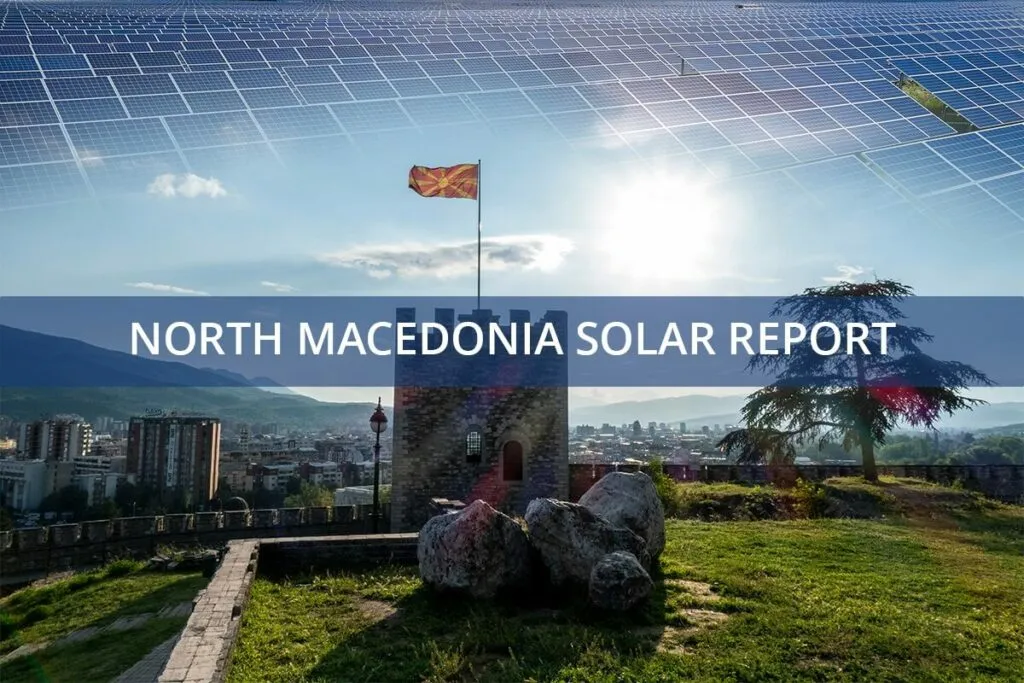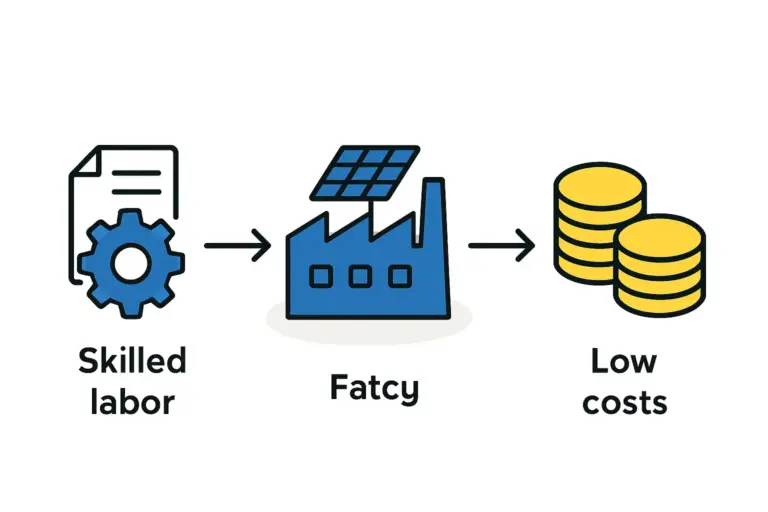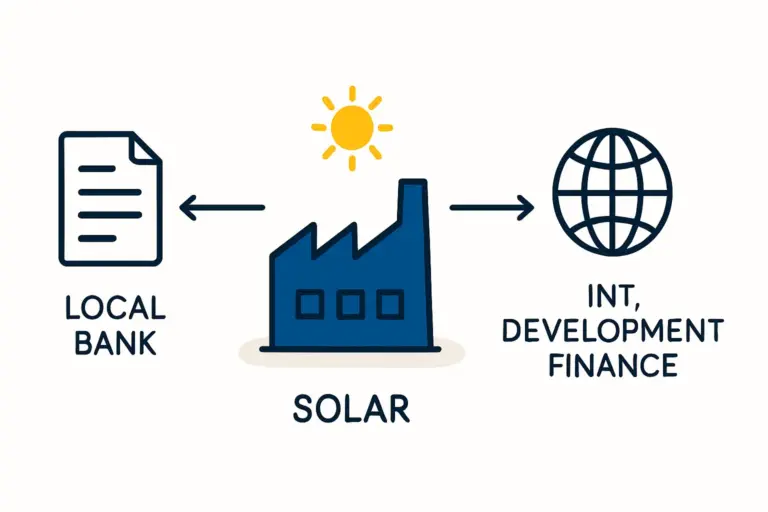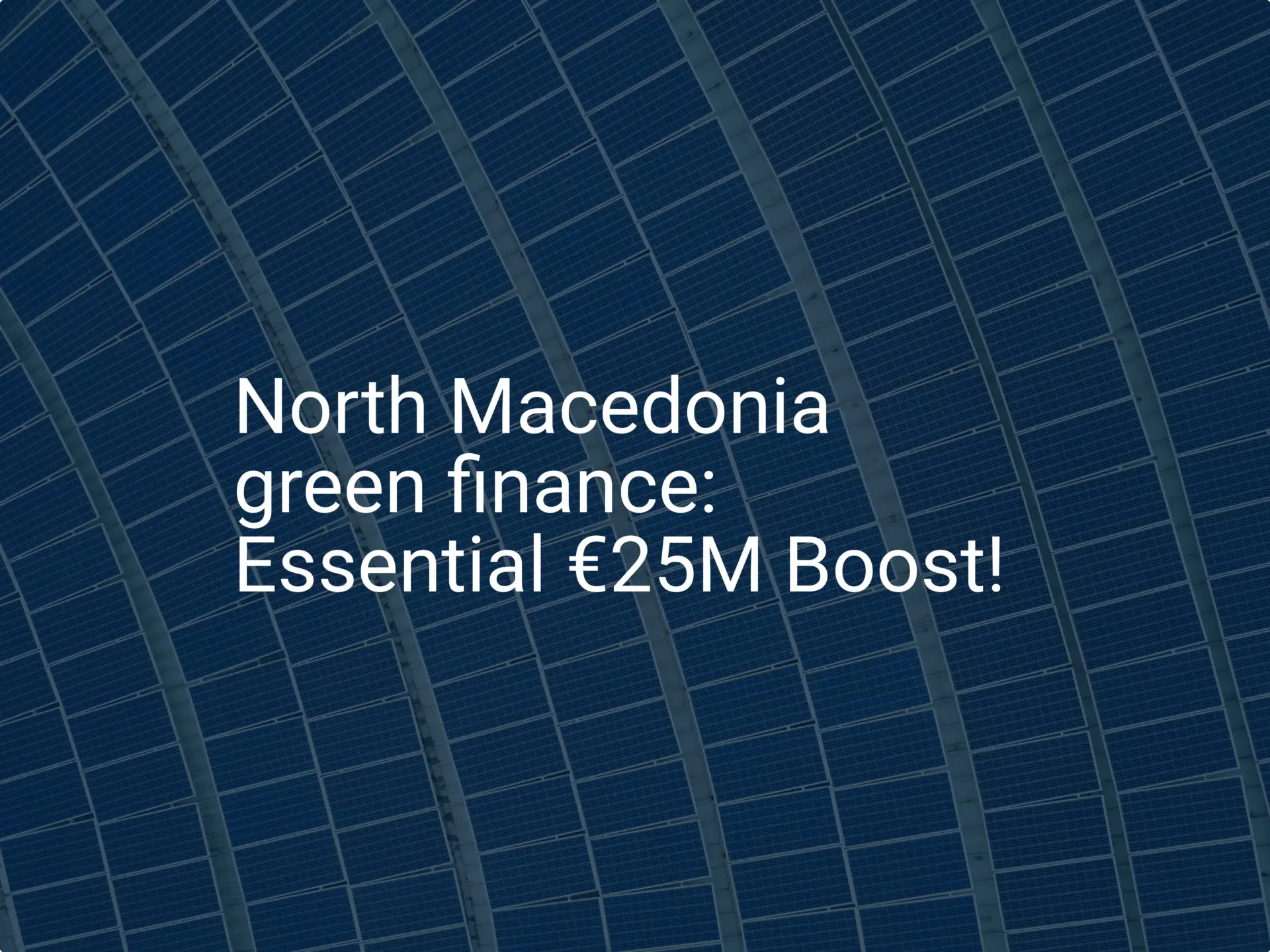When entering the solar industry, many entrepreneurs focus their initial business plans on capturing domestic market share. While a logical starting point, this perspective can overlook a more powerful, long-term strategy: choosing a manufacturing base that serves as a strategic export hub from day one. A location’s true value often lies not in its local demand, but in its access to larger, more lucrative regional markets.
This holds particularly true in Europe, where trade agreements and logistics create distinct advantages for certain locations. North Macedonia presents a compelling case study for investors in solar module manufacturing, offering a unique combination of market access, cost efficiencies, and logistical advantages that position it as a formidable gateway to both the European Union and the growing Balkan region. This article explores the core business advantages of establishing an export-oriented solar module factory in North Macedonia.
The Strategic Advantage of Tariff-Free Market Access
For any manufacturer, tariffs are a direct tax on revenue and a significant barrier to competitive pricing. One of the most compelling reasons to establish a manufacturing presence in North Macedonia is its preferential trade status with the European Union and its neighbors.
The EU Stabilization and Association Agreement (SAA)
North Macedonia is a signatory to a Stabilization and Association Agreement (SAA) with the European Union—a critical advantage for any solar module producer. The SAA grants industrial goods originating from North Macedonia, including photovoltaic modules, tariff-free access to the entire EU single market.
Consider the direct commercial impact: a module produced in North Macedonia can enter Germany, Italy, or any other EU member state without incurring import duties. A competitor manufacturing in a country without such an agreement may face tariffs, which immediately puts them at a price disadvantage or forces them to accept lower profit margins. This agreement effectively places a Macedonian factory on a level playing field with producers inside the EU, but with a potentially lower operational cost base.

The Central European Free Trade Agreement (CEFTA)
Beyond the EU, North Macedonia is also a member of CEFTA. This agreement facilitates tariff-free trade among non-EU countries in Southeast Europe, including Serbia, Albania, Bosnia and Herzegovina, and others. This creates a secondary, high-growth market right on the factory’s doorstep. As a result, an investor isn’t limited to a single market but can pursue a dual-pronged strategy, targeting both the mature, high-volume EU market and the rapidly developing Balkan energy market.
Geographic Proximity and Logistical Efficiency
A manufacturing hub’s success depends on its ability to move finished goods to customers quickly and cost-effectively. North Macedonia’s geographic position in the heart of the Balkan Peninsula provides a distinct logistical advantage.
The country is situated at the crossroads of two critical Pan-European Transport Corridors:
- Corridor X: Connects Salzburg, Austria, to the Greek port of Thessaloniki, running directly through North Macedonia.
- Corridor VIII: An east-west route connecting the Albanian port of Durrës on the Adriatic Sea with the Bulgarian ports of Varna and Burgas on the Black Sea.
This infrastructure places a factory in North Macedonia within a short transit time of major European markets. Access to deep-water ports like Thessaloniki (approximately 230 km from Skopje) and Durrës provides efficient global shipping lanes for both importing raw materials and exporting finished modules. For an entrepreneur, this translates into tangible benefits: reduced shipping costs, shorter delivery lead times, and a more resilient supply chain.
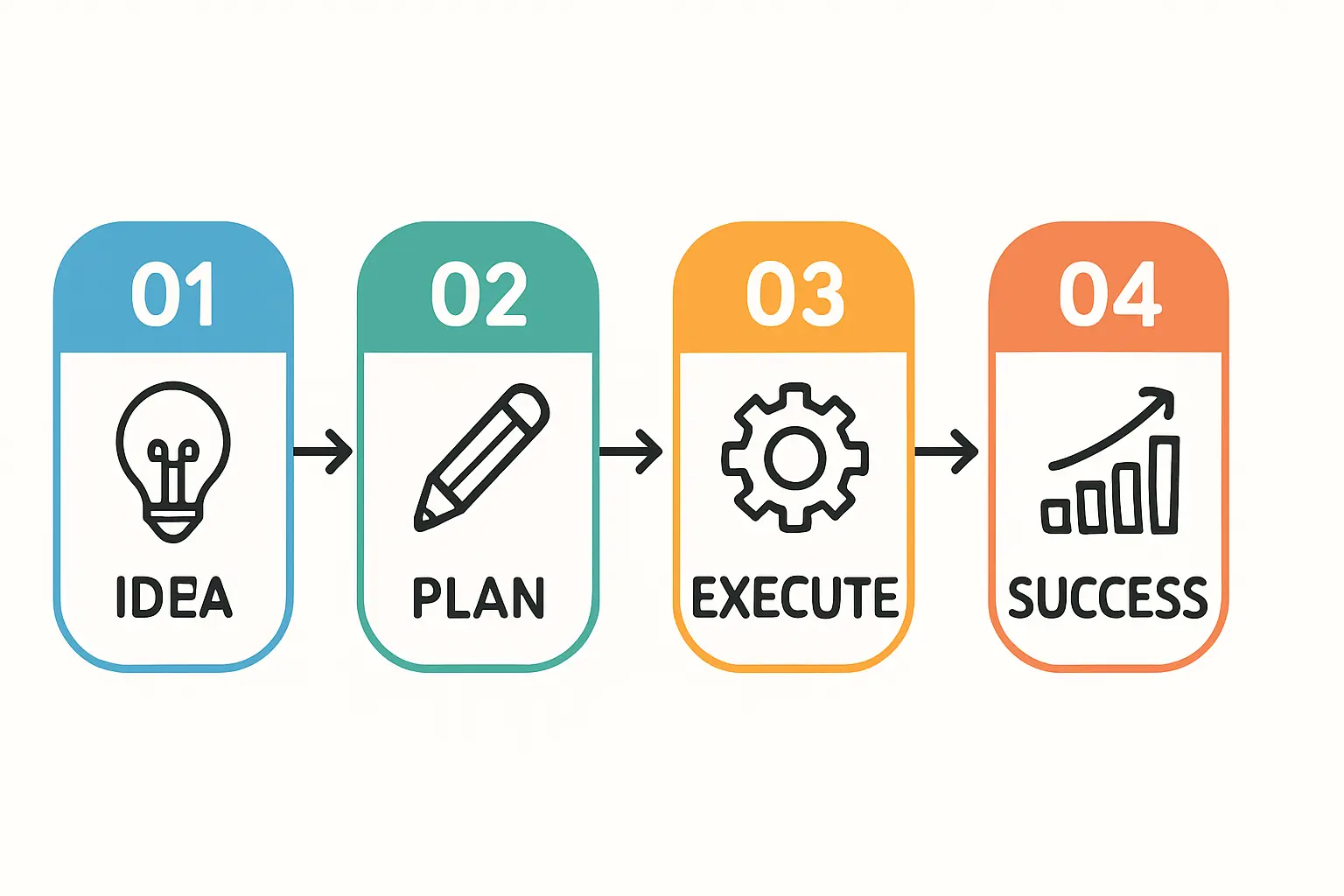
Building a Competitive Cost Structure
While market access and logistics are crucial, profitability is ultimately determined by the cost of production. North Macedonia offers a competitive environment that can significantly lower the operational expenses of a solar module factory. Key factors include:
- Competitive Labor Costs: The availability of a skilled and cost-effective workforce can lead to a lower cost-per-module compared to many EU countries.
- Favorable Energy Prices: Industrial electricity rates can be more competitive than in other parts of Europe, a significant variable in the energy-intensive process of module manufacturing.
When analyzing the investment requirements for a new plant, these cost advantages can be the deciding factor in achieving long-term financial viability and competitiveness in a global market. A lower production cost allows for more aggressive pricing strategies in export markets or yields higher profit margins.
De-Risking Investment: Political Stability and EU Alignment
For any significant capital investment, political and regulatory stability is paramount. As an official EU candidate country, North Macedonia is actively aligning its legal and regulatory frameworks with EU standards. This process, known as acquis communautaire, provides investors with a clear and predictable regulatory environment.
This EU orientation signals long-term stability and a commitment to fostering a favorable business climate for foreign investors. It reduces regulatory risk, assuring entrepreneurs that their operations will be governed by transparent standards aligned with their primary export market. Such alignment simplifies compliance and builds confidence for sustained, long-term operations.
Frequently Asked Questions (FAQ)
What are the primary markets accessible from a factory in North Macedonia?
The primary markets are the 27-member European Union, accessible tariff-free due to the SAA, and the growing Balkan nations, accessible tariff-free through CEFTA. This creates a diversified export strategy.
How do trade agreements directly impact the price of a solar module?
A tariff is an import tax, often calculated as a percentage of the product’s value. If a module costs €100 and faces a 5% tariff upon entering the EU, its landed cost becomes €105. A module from North Macedonia would arrive at €100. This allows the Macedonian producer to either sell at a lower price or retain an extra €5 in profit.
What are the main logistical challenges to consider?
While strategically located, investors must still conduct due diligence on border crossing times, local road infrastructure quality, and the efficiency of nearby ports. Engaging with experienced logistics partners is essential to optimize the supply chain. Experience from J.v.G. turnkey projects shows that planning these routes and partners early is a critical step.
Is a technical background in solar required to start such a venture?
A technical background is not a prerequisite. Entrepreneurs with strong business and project management skills can succeed by partnering with experienced technical consultants. A turnkey solar factory provider, for example, manages the technical aspects—from line design and machine procurement to installation and staff training—allowing the business owner to focus on strategy and operations.
Conclusion: Planning for Export from Day One
Choosing a location for a solar module factory is one of the most critical decisions an investor will make. By looking beyond domestic demand and evaluating locations based on their export potential, entrepreneurs can build a more resilient and profitable long-term business.
North Macedonia offers a powerful combination of tariff-free access to the EU and Balkan markets, strategic logistical connections, a competitive cost base, and a stable, EU-aligned political environment. For the discerning investor, it represents not just a place to manufacture, but a strategic platform from which to compete effectively across the European continent. Taking the time to understand these foundational advantages is the first step toward building a successful global enterprise.

